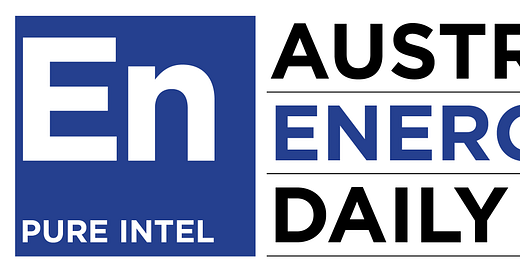Day 67: Lost in the mail
An introductory weekday newsletter from Schwartz Media. Counting the days since Australia had an energy policy.

Good morning and welcome to day 67.
Today in summary: Federal Labor will side with business to oppose legislation that could force divestment in the energy sector; Queensland Energy Minister Anthony Lynham looks set to oppose default pricing; and yet another joint statement is headed Angus Taylor’s way as organisations from all sides plead for a policy on emissions reduction.
— Charis
Today’s policy spin level: 🌪
Federal Labor has indicated it will oppose any legislation aimed at enabling forced divestment by energy companies - a “last resort” measure aimed at policing anti-competitive behaviour. Shadow Treasurer Chris Bowen told the Australian Financial Review:
"We need more investment. A threat of forced divestment will discourage investment [and create] sovereign risk."
Queensland Energy Minister Anthony Lynham has an ear to business on default pricing, warning it could harm competition and end up driving up prices. The view also aligns with the NSW Independent Pricing and Regulatory Tribunal. It says a default tariff could help in the short-term by preventing disengaged customers paying excessive prices, but over time is likely make customers more complacent, with less customers shopping around and fewer retailers competing in the market to serve them.
Energy Minister Angus Taylor has said the government will push on with its energy policy measures without the support of the states, but he will need the support of 9 of the 11 crossbench senators to legislate the new regulatory measures the government proposing. These include increased fines, penalties, enforceable undertakings, structural separation and divestiture.
Taylor will also need the support of energy companies to deliver on promised lower prices, given he wants standing offer price reductions in place by January 1. Prices are regulated differently at a state and territory level and generally agreed to mid-year. So he’s called for a roundtable to arm-twist the retailers to move sooner. It’s not being welcomed by the energy tsars, and comes as one analyst predicts AGL and Origin Energy earnings could be slashed by as much as 16% thanks to the price reductions.
Courier Mail | Sydney Morning Herald | Australian Financial ReviewTeaming up with your one-time political foes to write a letter has become de rigueur in Australian lobbying these days, and so another joint statement is on its way to Energy Minister Angus Taylor. The Australian Council of Social Service has joined the Business Council of Australia, and 13 other groups, to call for credible and stable energy policy that addresses all parts of the energy trilemma, including emissions reduction.
“Electricity costs are a key part of the "energy trilemma", together with reliability and emissions reductions. Reducing electricity costs requires investment in electricity supply and unlocking this investment requires credible and stable policy. Investors will only view policy as durable if it effectively addresses all parts of the trilemma, including meeting emissions reduction commitments.”
The Commentariat
The government’s proposed regulation of energy prices is stupid because what’s causing high prices is lack of investment, writes Danny Price, MD of Frontier Economics, in the AFR.
“The truth is that the government wants more price regulation because it knows that more price rises are likely, given that it has nothing to address the lack of investment and the inevitable exit of even more base-load generation in the near future.
“Regulating energy prices in a supply-constrained market is as stupid as capping rising vegetables prices caused by a drought, and then expecting farmers to grow more crops.”
Australia should engage in energy diplomacy, and use its global weight to push for the reform of the International Energy Agency, improve coordination between international organisations, and promote policy collaboration between G20 countries, argues the Lowy Institute’s Dr Christian Downie.
“While Australia may well be an energy superpower, the power of its energy diplomacy has historically been limited to promoting fossil fuels and securing export markets. Taking a broader view of energy diplomacy will not only help to improve the international system governing energy on which we all rely, it will also reinforce Australia’s wider foreign policy.”
Three more things
The latest Director Sentiment Index from the Australian Institute of Company Directors shows the biggest concern amongst the 1,252 members survey was climate change, as overall sentiment declined for the first time in 18 months. Directors rated energy policy, taxation reform and infrastructure as three of the top five short-term priorities for the Federal Government, and half of directors rated renewable energy sources as the most important area for infrastructure investment.
Taiwan’s electoral commission has said the country can hold a referendum on nuclear power in November. Taiwan has been moving away from nuclear power since the Fukushima nuclear disaster in 2011, but pro-nuclear protestors have argued the shift to fossil fuel has increased the risk of death from air pollution.
The Canadian government will impose a carbon tax in four provinces which have not introduced their own, with charges on large industrial emitters starting in January and a fuel tax to be introduced in April. Prime Minister Justin Trudeau says the average household will get more in rebates than they will pay in the tax.
This is an introductory service while we’re building a comprehensive daily paid online publication, coming in early 2019.
We’re not here to take sides, simply to cut through the noise, and help you make sense of the emerging policy and market trends you need to be across. We call it pure intel. You can read more about us here.


